This House believes marriage between close family members should be discouraged
Monday March 19 2012
MOTION PASSED
by 81% to 19%
Details
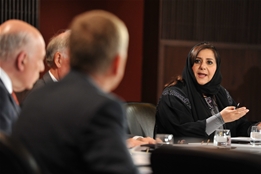
The Doha Debates threw themselves into one of the Arab world's most sensitive social issues, arguing the rights and wrongs of inter- marriage between blood relatives and voting overwhelmingly to discourage the practice.
In a lively session that featured geneticists and cultural commentators, speakers grappled repeatedly with the scientific and religious aspects of consanguineous marriage - the union of two biologically-related people, including, most controversially, first cousins.
Such marriages are especially prevalent in the Middle East and woven deeply into the social fabric of Islam.
In the end, though, the motion ‘This House believes marriage between close family members should be discouraged' was overwhelmingly carried by 81 percent to 19.
British commentator and broadcaster Sarfraz Manzoor and Israeli geneticist Ohad Birk
said these types of marriage prevented integration in society and increased the risk of children being born with severe physical and mental disabilities.
Birk, head of the Kahn Genetics Research Centre at Ben Gurion University, who has worked closely with Bedouin communities, made an emotional plea against marriage between first cousins.
"Last week I visited the home of a high school teacher and three of his kids aged 23, 20 and 18 are in diapers, severely mentally-retarded," he said. "These families send a very clear message: marry within your community, marry within your remote family, but don't marry your first cousin."
On the other side, an often combative Alan Bittles, a geneticist, and Saudi Arabian writer and columnist Samar Fatany disputed the level of risk to children of consanguineous marriages and argued the social benefits outweighed the health problems.
Fatany pointed out that marrying a stranger outside of the family in parts of the Middle East was frowned upon and that marriage between blood relatives brought a family together and promoted social integration.
Manzoor's claim that British Pakistanis were 13 times more likely to produce children with genetic disorders than other groups in Britain, sparked a tense exchange with Bittles, a professor with over 30 years experience of same-blood marriages.
Bittles dismissed Manzoor's data as "spurious".
The award-winning Doha Debates are a leading platform for free speech in the Middle East, and are transmitted to more than 400 million homes globally through their broadcast partners, including BBC World News.
Watch online
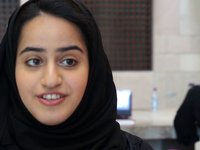 Pre-debate voxpops
Pre-debate voxpops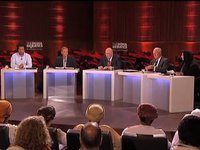 The debate
The debate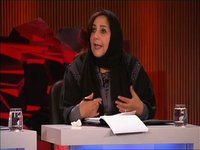 Highlights
Highlights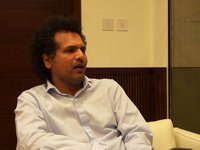 What the speakers had to say
What the speakers had to say Your reaction to the debate
Your reaction to the debate Debate wrap
Debate wrap
